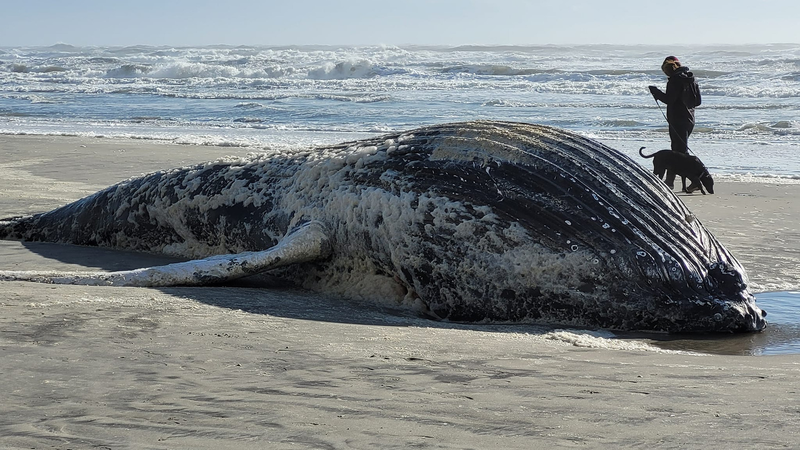
SOUTH JERSEY (KYW Newsradio) — So far this year, six dead whales have washed ashore in New Jersey. The total is already higher than any year back through at least 2016. There were four dead whales in 2022, but two of them were found in December.
Critics of offshore wind farms have been linking the deaths to sonar used by developers of the green energy technology, but an oceanographer in the Netherlands with extensive knowledge of the effect of sonar on marine life says this isn’t what’s killing whales.
“I wouldn’t expect any impact at all from those activities,” said Frans Peter Lam, of the Dutch independent research firm TNO.
He says wind farm exploration generally uses low-frequency sonar, at about 1 kHz to 2 kHz, to map the sea floor, and it’s not strong enough to have a major effect on wildlife. Some species of whales are more sensitive to sonar, but not the humpbacks that have represented the majority of whale strandings recently. He highlighted some of his own research, which found minimal impact from low-frequency sound waves.
“Diving into the data, we could see that there was some interruption of their feeding process when they heard the sounds, but they didn’t seem to be bothered very much,” Lam said. “The pile-driving hasn’t started yet. It’s all exploring activity, so I’m a little surprised anything will happen at all based on that.”
Other types of high-frequency sonar, such as some military and naval sonar, have proven more harmful. Several U.S. scientific agencies, such as NOAA, have said from the start that offshore wind sonar wasn’t the problem, but they didn’t provide much evidence to support that claim.
“I think they’re not showing much because I’m expecting there’s not much to show,” Lam said.
The issue has grown into a political lightning rod. Lam doesn’t care about any of that. He says he believes something other than sonar is to blame.
“I think, in this case, the government can be trusted. I’m just saying that for the topic,” Lam said with a chuckle. “I have no vote in the U.S.”
In a statement, a representative from the wind farm company Ørsted said:
“Ørsted has not conducted any acoustic surveys offshore of South Jersey since the summer of 2022.
“A vigilant watch for marine mammals is also maintained 24 hours a day by dedicated observers to ensure that vessel strike avoidance procedures are followed. Additionally, our survey vessels operate under a 10-knot speed restriction during transit and operations, which helps to minimize the potential for vessel strikes.”

